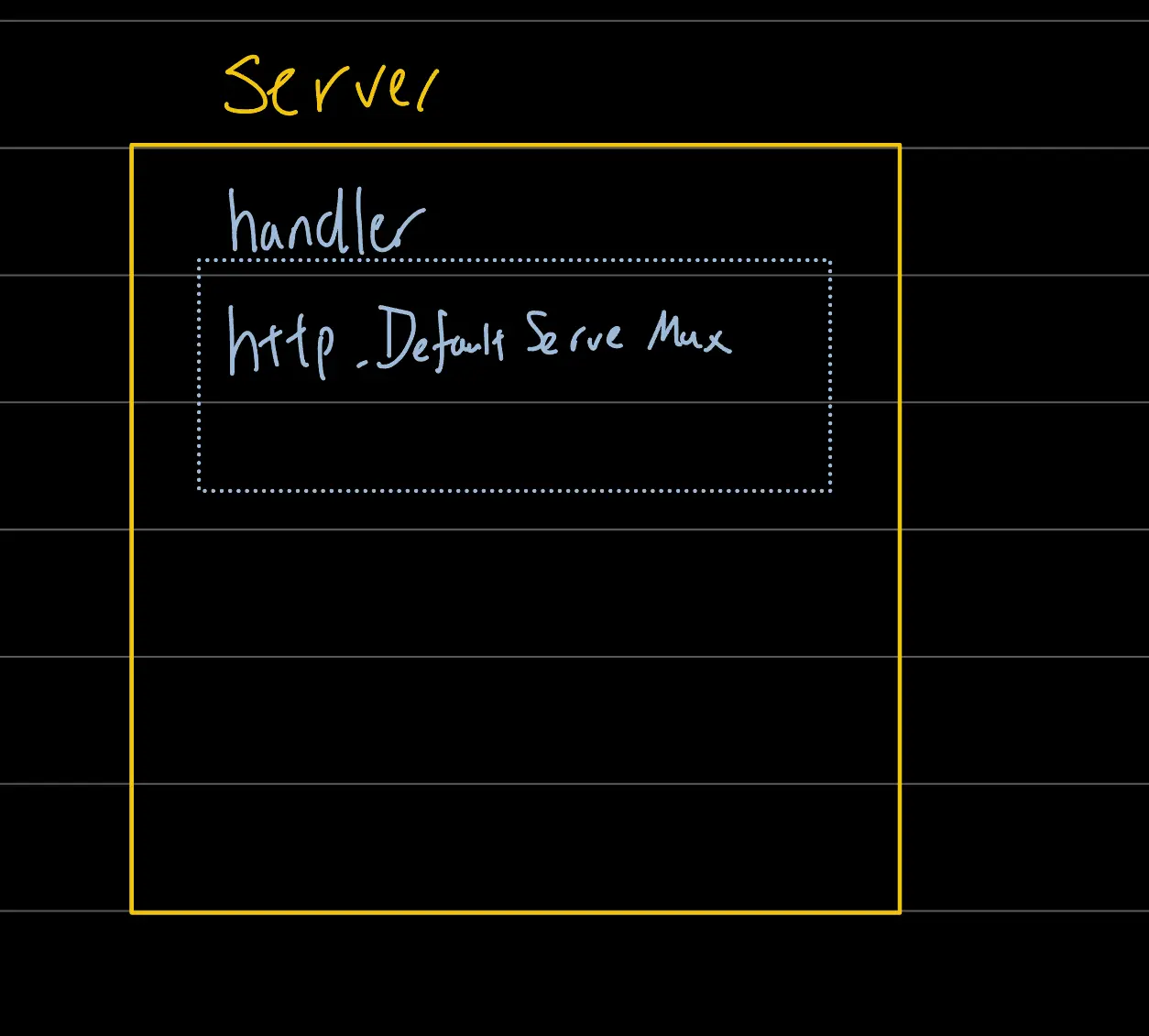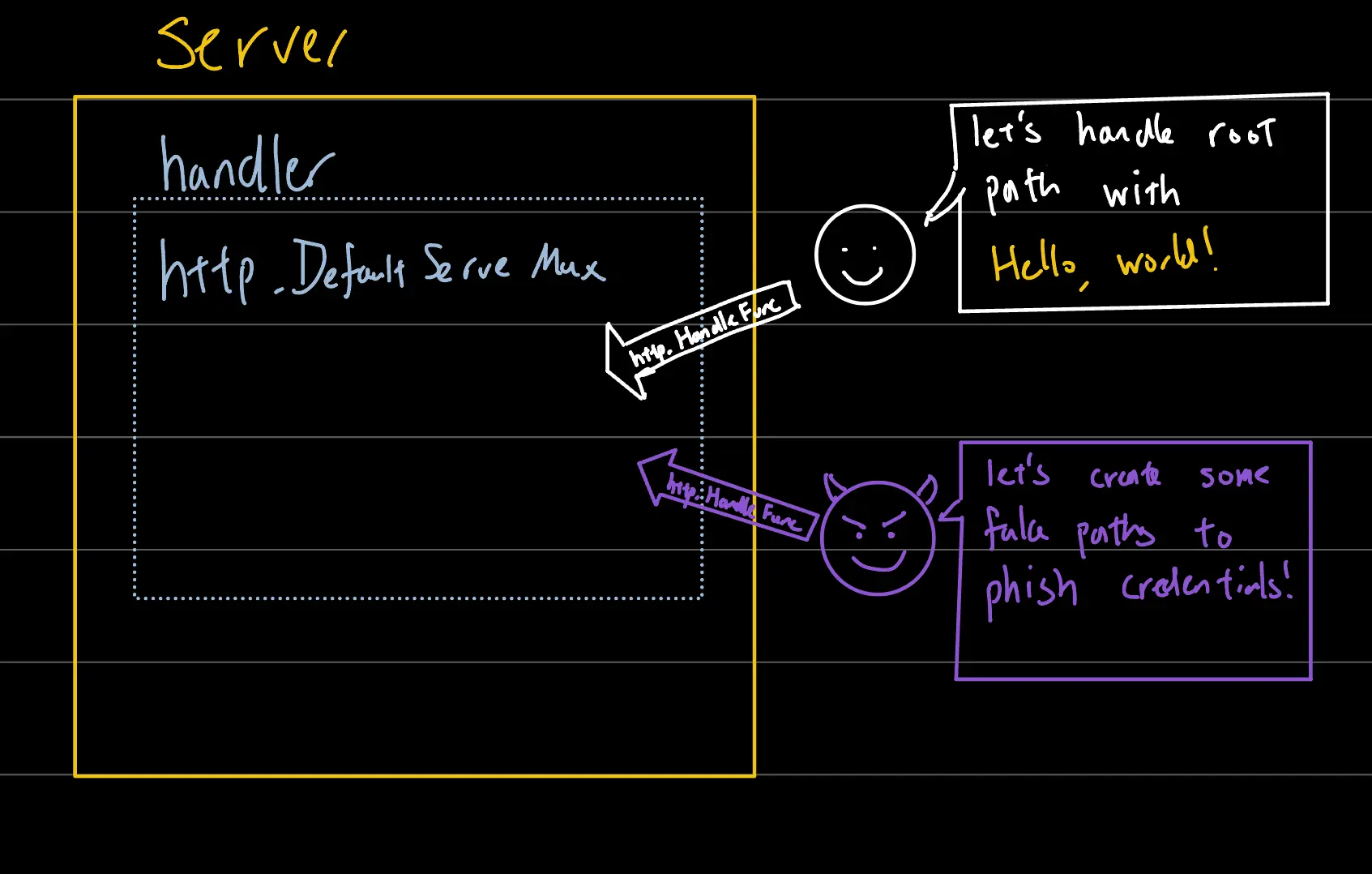
3 levels of creating basic golang web server
Many go developers rave about the comprehensiveness of go’s standard library.
Today, let me share 3 different levels of creating a web server using the standard net/http library.
All 3 examples strive to display “Hello, world!” on localhost:8081/
1 - Quick and dirty
- least lines of code
- least secure
- lowest customizability
http.HandleFunc("/", func(w http.ResponseWriter, r *http.Request) {
w.Write([]byte("Hello, world!"))
})
http.ListenAndServe(":8081", nil)
Yes… I am a big fan of Infinite Challenge…
What if we wanted to handle another path?
e.g. :8081/ says “Hello, world!” :8081/bye says “Goodbye, world!”
in the words of Sir Robin-the-not-quite-so-brave-as-Sir-Lancelot-before-he-was-cast-into-the-Gorge-of-Eternal-Peril
“That’s easy!”
http.HandleFunc("/", func(w http.ResponseWriter, r *http.Request) {
w.Write([]byte("Hello, world!"))
})
http.HandleFunc("/bye", func(w http.ResponseWriter, r *http.Request) {
w.Write([]byte("Goodbye, world!"))
})
http.ListenAndServe(":8081", nil)
not going to post another image. you just have to trust me it works.
least secure
let me explain with a picture.

you see.. every golang web server has this internal component called handler.
Like installing different engines in a car, you can specify which handler you want for your server.
We do that by specifying the handler as the 2nd argument of ListenAndServe().
show code
http.HandleFunc("/", func(w http.ResponseWriter, r \*http.Request) {
w.Write([]byte("Hello, world!"))
})
http.ListenAndServe(":8081", nil) // over here, nil means we do not specify a handler
By not specifying a handler, the web server employs DefaultServeMux.
(analogous to not specifying the type of engine, thus resulting in car with default engine)
Notice DefaultServeMux is spelt with a capital D. i.e. it is a global public variable?

As easy as it was for you to inject HandleFunc, it could also be that easy for malicious code to be injected into DefaultServeMux.
2 - Still quick but less dirty
Show code
File: server.go
package server
func NewHandler() *handler {
mux := http.NewServeMux()
mux.HandleFunc("/", func(w http.ResponseWriter, r *http.Request) {
w.Write([]byte("Hello, world!"))
})
mux.HandleFunc("/bye", func(w http.ResponseWriter, r *http.Request) {
w.Write([]byte("Goodbye, world!"))
})
return &mux
}
File: main.go
package main
import (
"github.com/xxx/yyy/server"
)
handler := server.NewHandler()
http.ListenAndServe(":8081", handler)
That’s better. Now our handler is nicely tucked away as a private variable.
We handled (so punny) the not secure part but this is not customizable still.
The astute among you might notice that we can specify the server too!
3 - Full customizability
Show code
File: server.go
package server
func NewHandler() *handler {
mux := http.NewServeMux()
mux.HandleFunc("/", func(w http.ResponseWriter, r *http.Request) {
w.Write([]byte("Hello, world!"))
})
mux.HandleFunc("/bye", func(w http.ResponseWriter, r *http.Request) {
w.Write([]byte("Goodbye, world!"))
})
return &mux
}
File: main.go
package main
import (
"time"
"github.com/xxx/yyy/server"
)
h := server.NewHandler()
s := http.Server{
ReadTimeout: 1 * time.Second,
WriteTimeout: 1 * time.Second,
Handler: h,
Addr: ":8081",
}
s.ListenAndServe()
So now we can specify ReadTimeout, WriteTimeout, etc. To prevent unresponsive/slow clients from exhausting connection pool!
(for other options check net/http documentation here)
Conclusion
That was pretty impressive and well thought out by the golang development team.
Reminded me of the Go Proverb “Make the zero value useful”